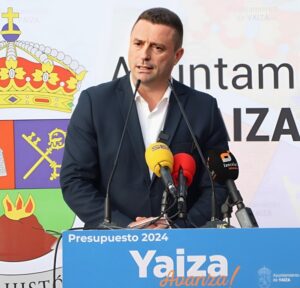
Major Anti-Crime Operation in Las Palmas
The Guardia Civil of the Las Palmas Command has arrested four individuals aged between 26 and 53 years, while a fifth person is under investigation for alleged intellectual property offences, involvement in a criminal group, and violations of workers’ rights.
This marks the largest intervention of its kind in the Canary Islands, whereby not only counterfeit materials were seized, but also production machinery used to manufacture the fakes intended for distribution throughout the Canaries.
Background of the Investigation
The investigation commenced in July 2025, following an inspection of several containers of clothing arriving on the island of Lanzarote. This initial review led agents to an industrial warehouse that raised suspicions, which later turned out to be the epicentre of a sophisticated counterfeiting network.
Uncovering the Counterfeit Operation
Inside the warehouse, located in the municipality of Arrecife, a factory was discovered that specialised in the production of counterfeit garments featuring logos and designs from well-known commercial brands. According to sources within the investigation, the individuals involved had been conducting this illegal activity for at least seven years, operating on a large scale with an organised distribution system aimed at introducing counterfeit goods into the market.
The criminal group imported large quantities of unbranded clothing from various wholesale companies located in the Cobo Calleja industrial estate in Fuenlabrada, as well as from Parla and Alcobendas (Madrid). These items arrived in containers by sea at the port of Los Mármoles in Arrecife. Once in Lanzarote, the criminal group stored the goods in the registered industrial warehouse, where the counterfeit clothing was also manufactured.
Seizures and Findings
During the operation, agents accessed the interior of the industrial warehouse, where they uncovered a comprehensive setup for the counterfeiting of clothing and footwear. The raid resulted in the seizure of ten direct-to-garment printing presses, a heat press, and two machines specialised in the screen printing of trainers, all connected to computers for designing and electronically reproducing the logos of prominent commercial brands.
The findings were not limited to industrial machinery. Investigators also confiscated a significant quantity of logos, transfers, and labels, ready to be applied to textile and sports products. Among the affected brands were some of the most notable on the international market: Adidas, Nike, Puma, Lacoste, Calvin Klein, Hugo Boss, Michael Kors, Christian Dior, Armani, Balenciaga, Gucci, Versace, Fila, and Tommy Hilfiger, among others.
In addition, during the operation, around one thousand boxes containing garments prepared for counterfeiting were seized. According to a report compiled by judicial experts present during the investigation, the value these items could have reached in the market, once sold to the public, was estimated to be around eight million euros. Furthermore, the Guardia Civil conducted three searches of residences and one at a shop, where counterfeit garments, cash, and computer equipment were confiscated.
Consequences of Counterfeiting
Counterfeiting damages the reputation of brands, as the inferior quality of counterfeit products erodes consumer trust, leading to severe economic repercussions, including job losses and millions in sales for businesses, as well as health risks for consumers due to the use of toxic dyes and fabrics.
Finally, counterfeiting also presents a legal risk for offenders, resulting in prison sentences and fines, along with negative impacts on the country’s tourism image and competitiveness.
The investigation has involved the Labour and Social Security Inspection of Las Palmas, with an inspector present to ascertain the existence of potential fraud against Social Security and labour violations by members of the investigated criminal group.
The investigation remains ongoing, and further arrests cannot be ruled out.














